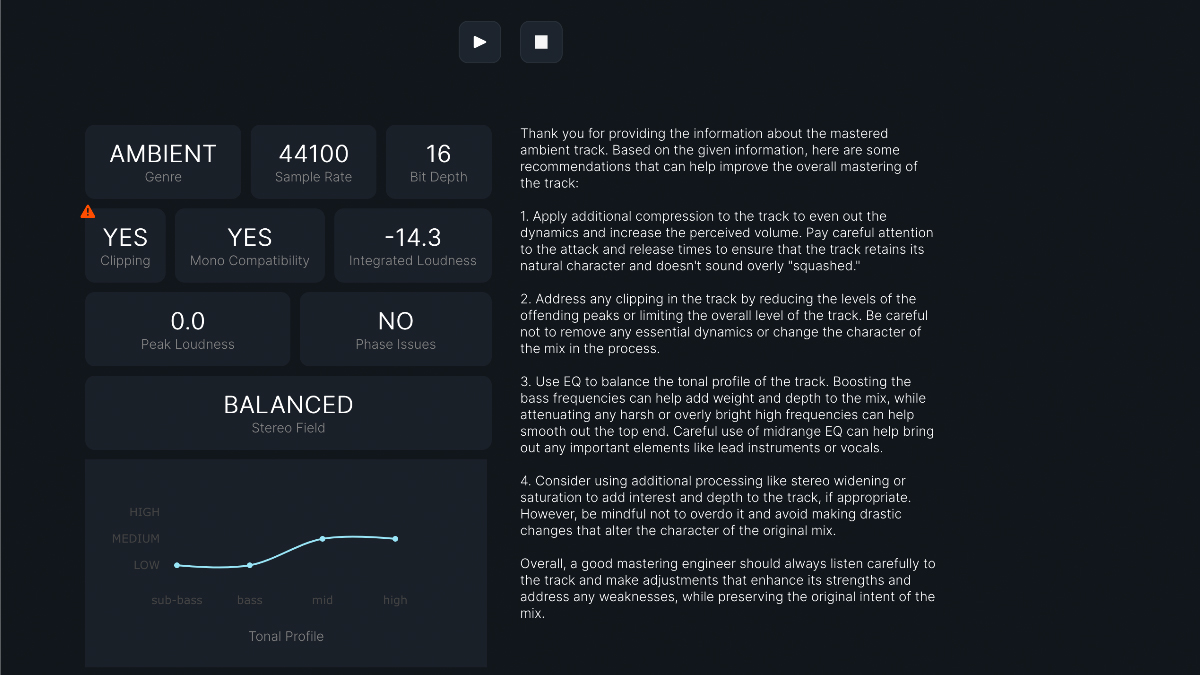Mix Check Studio is a free AI tool that tells you what’s wrong with your mix and how to fix it
The world’s first golden-eared robot?

Want all the hottest music and gear news, reviews, deals, features and more, direct to your inbox? Sign up here.
You are now subscribed
Your newsletter sign-up was successful
AI-powered mixing platform RoEx has tasked its rapidly rising machines with creating Mix Check Studio, a free online tool that’s designed to tell you what’s wrong with your mix and suggest how you can go about fixing it.
If that sounds a bit too good to be true - and maybe it is - you can take some kind of assurance from the fact that Mix Check Studio’s diagnostic probe is equipped to identify a wide range of typical mixing and mastering concerns, including clipping, phase issues, mono compatibility, stereo field problems and appropriate loudness levels. It can also assess the tonal characteristics of mixes in different genres.
RoEx makes no claims about Mix Check Studio’s ability to resolve these issues on its own, but you will be advised on what you need to do to make your mix sound better. There are limits, though - the website states that “mixing and mastering is an art form, and all feedback is subjective. Ultimately, it's up to you to decide what feels right. Trust your ears!”
Discussing Mix Check Studio, RoEx founder David Ronan says: "I'm thrilled to offer this powerful free tool to artists at all stages of development. Mix Check Studio is just the start of our imaginative plans to help music creators produce their best work.”
The easiest way to decide if Mix Check Studio is going to be useful for you is simply to use it. The process is straightforward: upload a track, indicate whether it’s mixed or mastered and specify a musical style. Your audio is then sent to RoEx’s servers, where “sophisticated algorithms and AI” are used to analyse the track. Your music is deleted once this process is complete, though anonymised analysis results are stored (presumably to try and make the system better).
Get started on the Mix Check Studio website.
Want all the hottest music and gear news, reviews, deals, features and more, direct to your inbox? Sign up here.



I’m the Deputy Editor of MusicRadar, having worked on the site since its launch in 2007. I previously spent eight years working on our sister magazine, Computer Music. I’ve been playing the piano, gigging in bands and failing to finish tracks at home for more than 30 years, 24 of which I’ve also spent writing about music and the ever-changing technology used to make it.